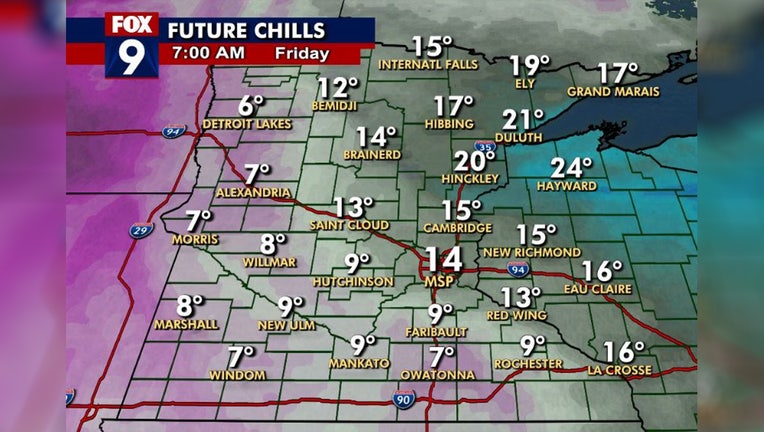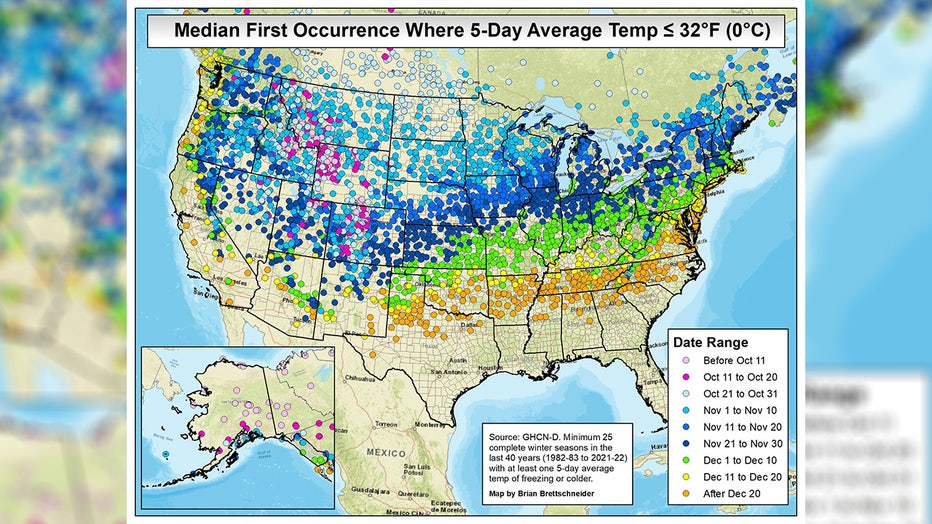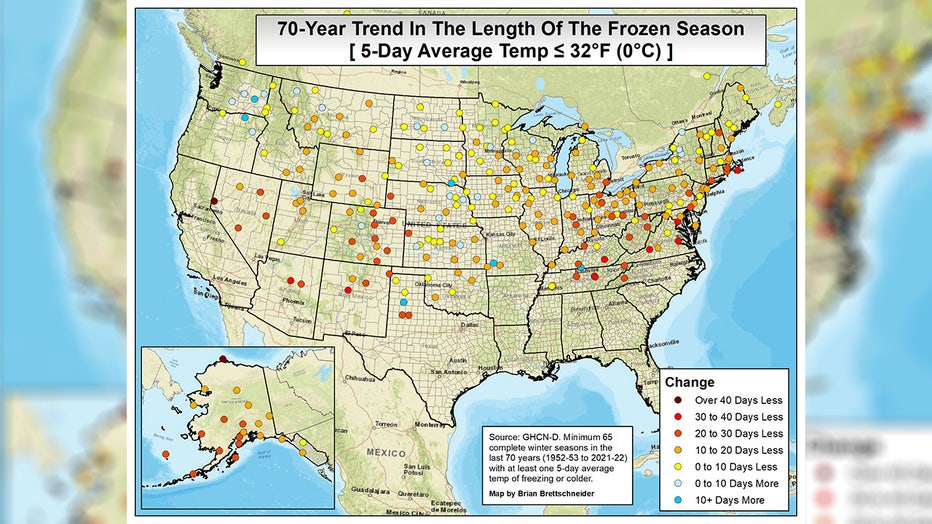Minnesota weather: Winter is coming

Future chills.
(FOX 9) - We all knew it would happen eventually, that permanent dip into frozen temperatures, but this year appears like it's going to happen earlier than much of the last decade. While temperatures often dip quite low this time of year, it usually comes with plenty of fluctuations that lead to brief cold snaps and then a swing toward some relative warmth. But the cold that arrives late Thursday could hang around for the rest of the season and essentially put an end to any chances for mild temperatures moving forward.
For you homeowners who still need to make some last-minute preparations for the frozen season, you still have a couple more days. But those days are likely going to come with a bunch of rain. Once the precipitation starts to wind down, that's when the cold will hit.
Check out wind chills across the area from midweek into Friday:
Brutal cold looks like it will show up VERY quickly late Thursday and into Friday ... and then it is likely to hang around for the foreseeable future with temps staying below freezing until at least early next week. This will start our ground freeze at least two weeks earlier than the last several years, but is right around the long-term climatological average.
Check out when we see temperatures average at or below the freeze mark for five straight days, which can be considered the beginning of "ground freeze" season:

Median first occurrence where five-day average is 32 degrees or lower.
Each colored dot on this map represents an official National Weather Service climate site. For the Twin Cities, the median date for the last 40 years is somewhere in the second or third week of November. That would put us right on target this year. For northern Minnesota, it's roughly two weeks earlier. However, in the last 70 years or so, the Twin Cities is averaging 10 to 20 fewer days per year where our ground is frozen ... most of that smaller number of days happens in the fall as our warmth has been hanging around longer year after year.

The average length of the frozen season.
The biggest thing of note though this year is that our first five days where temperatures average at or colder than 32 degrees, will be much colder than just that freeze mark. In fact, the current forecast (which can change a bit) shows average temperatures this weekend and early next week will be in the low to mid-20s which is a much larger jump into frozen temperatures than in many recent years.
Stay warm!

Election Day forecast: Quiet through most of the day with showers possible tonight
Wednesday should bring some much needed rain to most of the state

